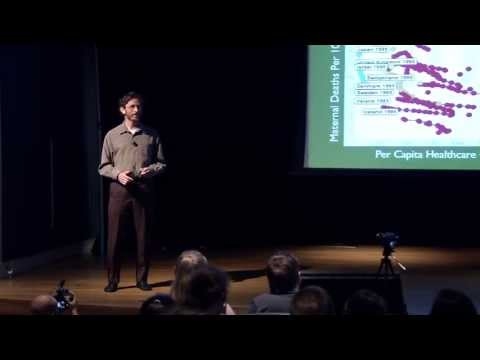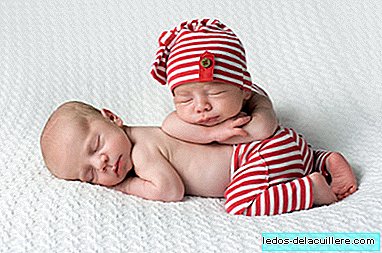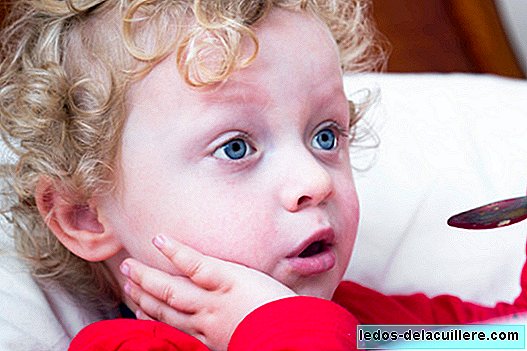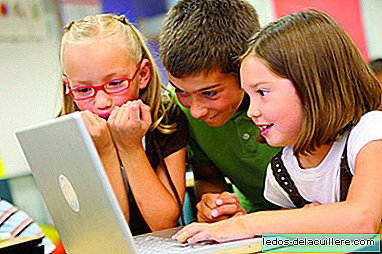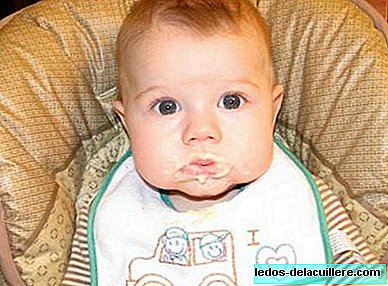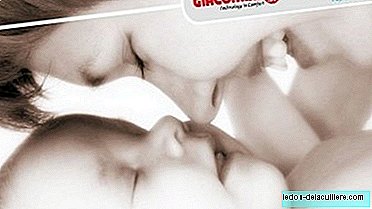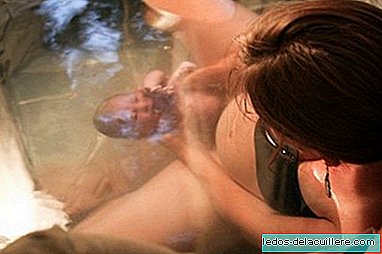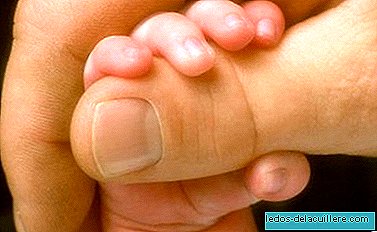
We published yesterday the first installment of the Babies interview and more to the psychologist Ramón Soler, which gave us an explanation of how parents reproduce the parenting we receive, including whipping, insults or screaming. We want to continue to deepen that line in this second part.
Most parents love their children madly and do what they believe best for them, but that sometimes means they make mistakes and hurt them physically or emotionally. The biggest barrier is to understand, explain and overcome that perhaps our parents, if they beat us or used punishments or threats, were wrong even if they loved us. And if we repeat their mistakes, we will undoubtedly repeat the damage they did to us.
How can we assimilate that the one who beat us was not right without denying the love our parents had for us?
It is a very controversial issue that we must solve if we pretend to be free and emotionally healthy adults. It seems difficult to understand that the same parents who beat us, tell us next that they love us. For the child it is a tremendous contradiction: on the one hand, intuition tells him that love cannot be associated with blows, but the facts show him that those who say they love him hit him.
And how do we internalize what happened and give it some sense?
As we grow, we elaborate complicated theories to try to harmonize these concepts, after all, they have always told us that parents love their children. But our deepest self knows that something is not right, so it is still shocking.
I understand, Ramón, but I don't know how we can understand this conflict and overcome it.
Solving this paradox is a primary part of any therapy that really cares about delving into the roots of the emotional problems that adults suffer. Explain to me what the child is doing to survive the abuse. When we were little we had to adapt and submit, but we must be able to take off the bandage that we put on in childhood to be able to survive between so much contradiction and put things in their place, lower our parents from the pedestal where we put them and see them as people of flesh and bone, understanding that they are not perfect and that they have defects. Is it good for our emotional health to understand that our parents were wrong? Sure. Only then can we ask ourselves if it really was love or were ways of shaping the child in his image and likeness, following the same restrictive education they received, without being able to question anything.
What do you mean by "molding your child in his image"?
Many parents use their children to live through them the life that they themselves could not live. And, to achieve this, they resort to all the means at their disposal, including cheeks, if the child deviates too much from the path they have organized.
What happens when we repeat what they did to us and give the first scourge?
I believe that, when a father or mother gives his son the first scourge, something must be shaken inside him that makes him rethink what he has done. That is the key moment in which adults can decide to change their lives and that of their children. Fortunately, some realize and decide to abandon that attitude, while others ignore this moment of doubt and continue to transmit the same violence they received.
You mean our parents loved us even if they hit us or hurt us emotionally?
We can say, at most, that they loved us in their own way, but that this way of loving is not love. Love implies respect and hitting is not respect. For love, one is able to modify their wrong convictions. If they were not able to question the educational system they suffered from their own parents, we must question to what extent the love they said they felt for us was sincere. And to end this very conflicting issue, I would like to leave you with what Alice Miller thought about this topic: "Love and self-mutually exclude each other (...) True love supports the truth."
So, I ask you, is it any use hitting a child?
If what we want to hit you is to stop doing something, all we will get is to be afraid of our reaction and find a way to continue doing the same, but without us knowing. In the long run, the child will lose confidence in his parents and, with each cheek, communication with them will deteriorate. It is also very possible that he stops expressing his emotions if he perceives that they are not well received and psychologists know very well the dramatic consequences, emotional and physical, of suppressing emotions.
Will the child learn that hitting and using violence is acceptable if we hit him?
Yes. If we add to all of the above that the child will learn that the way to resolve conflicts is through violence, we can conclude that it is no use hitting a child.
When talking about hitting a child, if it is not a beating, the problem is usually minimized, but the same would be intolerable if we talk about hitting another adult, and especially, now that society is aware of gender abuse, to a woman. Do you think it is different to hit a child than to hit a woman?
Those who beat their children are very angry when someone raises the question of whether they are not treating their children like the abusers who beat their women when, in fact, they use very similar excuses to justify themselves: “I don't care, It does not fulfill its obligations, it has answered me badly, it has answered my mother badly… ”.They argue that, since the woman is an adult and is "educated," it is not necessary to correct her, while children are little less than wild animals and need a guide to adapt to society, which seems to me a tremendous barbarity.
In recent decades we have made great progress in the defense of women's rights and, even so, deaths occur almost every week.
Yes, there is a great rejection of mistreatment of women, but it is not the same when we talk about the same threats, screams or blows to children. Isn't it even more serious to hit a helpless child?
Let's think about what happens with children who are smaller, more helpless and cannot pack and leave home: the consequences for emotional health are catastrophic.
In addition, children attacked or violated by their environment, face the social permissiveness that exists in the face of violence against them. We all know cases of people who stand in the way of an aggressor when he is mistreating a woman, but how many people are outraged when they see a father hit or verbally assault his son? Not many right?
No, not many. None or almost none. I have feared intervening myself and when I have done so, I have been uncertain about the consequences for the child.
As I see it, all kinds of violence are reprehensible. Both hitting a woman and a child is a form of abominable physical and psychological abuse of power.
The point is that, to end the cycle of terror: violence in childhood, aggressive adults who hit or submissive adults who let themselves be hit, campaigns against violence should begin to focus on childhood. Stop violence in childhood and we will stop violence in adulthood.
But, Ramón, not all parents have educational or emotional resources when there is a conflict with the child, lose control or act as was done with them. What can we do if a child "misbehaves"?
We can make an effort to understand them. Many times we want children to be like miniature adults and we forget that the universe of children is totally different from that of adults. Perhaps what the child is doing will help him learn something from the world he lives in, something he will stop learning if we prevent him from playing what he is playing. For example, a child is absorbed playing with water, passing it from one container to another. Surely, spill some water on the ground, but can we say it is misbehaving? If we keep him from experimenting with water under the excuse that he has to be a good child, he may not have time to assimilate what he was learning with his game. We must be very careful with the labels we put on children. Children are neither good nor bad, therefore, behaving "good" or "bad" is something that always depends on the adult's point of view. If we repeat these labels, we run the risk that the child will internalize and end up adopting the role of "good child" or "bad child".
I understand, but tell me, what emotional damage causes a child to be hit by those who have to protect him?
As I check every day in my office, first of all, it creates a tremendous confusion and a lot of insecurity. If those who, supposedly, should take care of me, treat me like this, who will take care of my well-being? The child has no other parents, so if he wants to survive, He ends up adapting to the situation in which he lives. In addition, to conform to the demands of his parents, he renounces his true personality, he hides it under layers and layers of rules, orders and submissions.
Over time, the child will end up losing his inner self and assuming that the treatment he receives is normal, that he deserves it because of his way of being and that love is like that.
In addition, you will have a greater tendency to get sick, because a long exposure to stress hormones decreases the body's immune response and will make you more vulnerable to any attack against your defenses.The tension that causes living in a violent environment, where at any time and for anything they can give you a scourge, generates a total helplessness. This will have a dramatic effect on the child's self-esteem, which will drag in his adult life and affect him in his friendship and relationship.
Ramón Soler is a psychologist Specialist in Clinical Hypnosis and expert in Reconstructive Regressive Therapy. With extensive experience as a psychologist, he specialized in the treatment of autism, at the University of Malaga. For several years, he collaborates with the Association of Malaga SIDI, leading in the treatment of Autism.
As an expert in child psychology, he has developed with Elena Mayorga Toledano (a graduate in Philosophy and Letters and an expert writer in children's literature) a therapy specifically dedicated to children's psychological problems called Psychoeducational Screenplay Therapy for children.
So far this second installment of the interview with psychologist Ramón Soler, in which he explained to us the damage that our parents, if they beat us or hurt us emotionally, caused us and gave us some first clues to understand the consequences of repeating this model.


